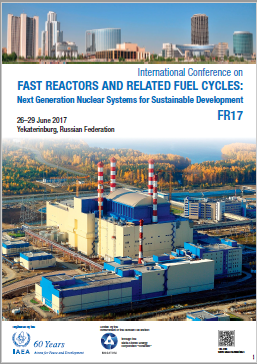Speaker
Prof.
Koji Morita
(Kyushu University)
Description
This paper describes the status of safety research activity in the field of sodium-cooled fast reactors (SFRs) in Japan, mainly on severe accident related issues. Core damage sequences are analyzed by applying probabilistic risk assessment methodology and categorized into typical accident phases, i.e., initiating phase, transitions phase, and material relocation and cooling phase. In order to utilize superior characteristics of sodium as coolant, achievement of in-vessel retention is one of important objective of safety design and evaluation for SFRs. Focus is on the later phases of accidents for which experimental data acquisition and code development are going on. A series of out-of-pile and in-pile experiments in EAGLE-3 and related tests in the MELT facility are being conducted for molten fuel discharge and cooling. Study on debris bed formation and self-leveling effect is also conducted. A fast-reactor safety analysis code, SIMMER, is developed to enhance its capability to be applicable such phenomena in the later phase of accidents.
Country/Int. Organization
Japan
Author
Mr
Shigenobu Kubo
(Deputy Director Advanced Fast Reactor Cycle System R&D Center, JAEA)
Co-authors
Dr
Kenji Kamiyama
(Japan Atomic Energy Agency)
Prof.
Koji Morita
(Kyushu University)
Dr
Tohru Suzuki
(Japan Atomic Energy Agency)

